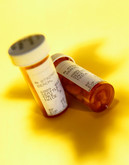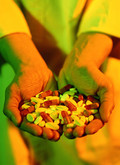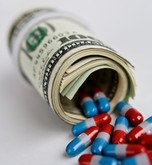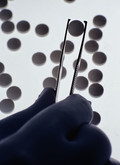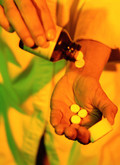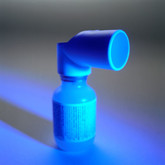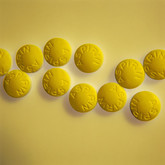Generics
Market evolution of new drug formulations
Brand-name drug manufacturers sometimes create modified versions of their approved drugs which can include new strengths, dosage forms, or delivery routes. This product modification can meaningfully increase patient treatment options; however, some cases have come under scrutiny as they do not offer any clear therapeutic advantages. This second practice is a form of ‘product hopping’, a method used by manufacturers to prolong revenue streams related to market exclusivity. Complementary strategies such as product discontinuation can augment the impact of product hopping.
Factors associated with increased side effects and lower perceived efficacy when switching to a generic
In 2017, the New Zealand Pharmaceutical Management Agency (PHARMAC) changed the funded version of the antidepressant venlafaxine from Efexor XR (the branded originator) or Arrow-Venlafaxine XR (a generic version) to a new generic, Enlafax XR. MacKrill and Petrie examined differences in preferences and perceptions between patients switched from the originator branded venlafaxine to the new generic, and those switched from the old generic version [1]. Specifically, they investigated the factors associated with preference for branded medicines, side effects reported following switching and efficacy ratings of the new generic.
FDA approves generics from Amneal and Dr Reddy’s, and Natco submits ANDA
In January 2019, the US Food and Drug Administration (FDA) approved Amneal Pharmaceutical’s (Amneal) generic Exelon patch and Dr Reddy’s Laboratories (Dr Reddy’s) Tosymra nasal spray, and Natco Pharma submitted an abbreviated new drug application (ANDA) to FDA for its Ibrutinab tablets.
Escalating prices of generic drugs in the US
Generic prescription drug prices have been escalating rapidly in the US. In 2014, generic drug prices increased by 38% on average. Public outcry has led to a flurry of legislative proposals, and two federal bills were introduced in 2017 to improve price transparency and identify drugs exhibiting outlier ‘price spikes’, however, both remain unenacted. In the first three months of 2018, 53 drug pricing transparency bills were initiated in 23 state legislatures.
Pilot procurement scheme in China cuts drug prices
The Chinese pharmaceutical market, which is dominated by domestic manufacturers, is the second largest in the world in terms of value after the US. In a bid to lower drug prices for patients and reduce costs for manufacturers, the Chinese State Medical Insurance Administration introduced a national pilot scheme for tendering with minimum procurement quantities in a recent round of reforms across 11 major cities. If proven successful, the scheme is expected to be rolled out across China.
The 700-dollar vitamin: excessive generics prices in the US
Authors from Johns Hopkins University School of Medicine discuss excessive prices for generics in the US, using vitamin K1 as an example [1].
USP action plan for generics and FDA new innovation office
The US Pharmacopeia (USP) has issued an action plan to promote generics and the US Food and Drug Administration (FDA) has announced the creation of a new office for drug innovation.
Mylan launches Advair generic at 70% discount
US-based drugmaker Mylan announced on 12 February 2019 the launch of Wixela Inhub (fluticasone/salmeterol inhalation powder, USP) at a list price 70% less than the originator product, GlaxoSmithKline’s (GSK) best-selling asthma drug Advair Diskus.
Impact of generic reference pricing on candesartan and rosuvastatin use in South Africa
Researchers from South Africa and The Netherlands investigated the effect that generics and generic reference pricing has on candesartan and rosuvastatin use in South Africa [1].
Zydus gets FDA approval for skin, heart and acid reflux generics
Zydus Cadila has received final approval from the US Food and Drug Administration (FDA) to market betamethasone dipropionate cream, 0.05%, a generic version of Diprolene® AF, and generic amlodipine and atorvastatin tablets (Caduet®). It has also received tentative FDA approval to market generic esomeprazole magnesium delayed-release capsules (Nexium®). This brings the total approvals of the Zydus group to 247, and it has so far filed over 330 abbreviated new drug applications (ANDAs) since the filing process commenced in the 2003‒2004 financial year.

